16 Secret Weight Loss Weapons
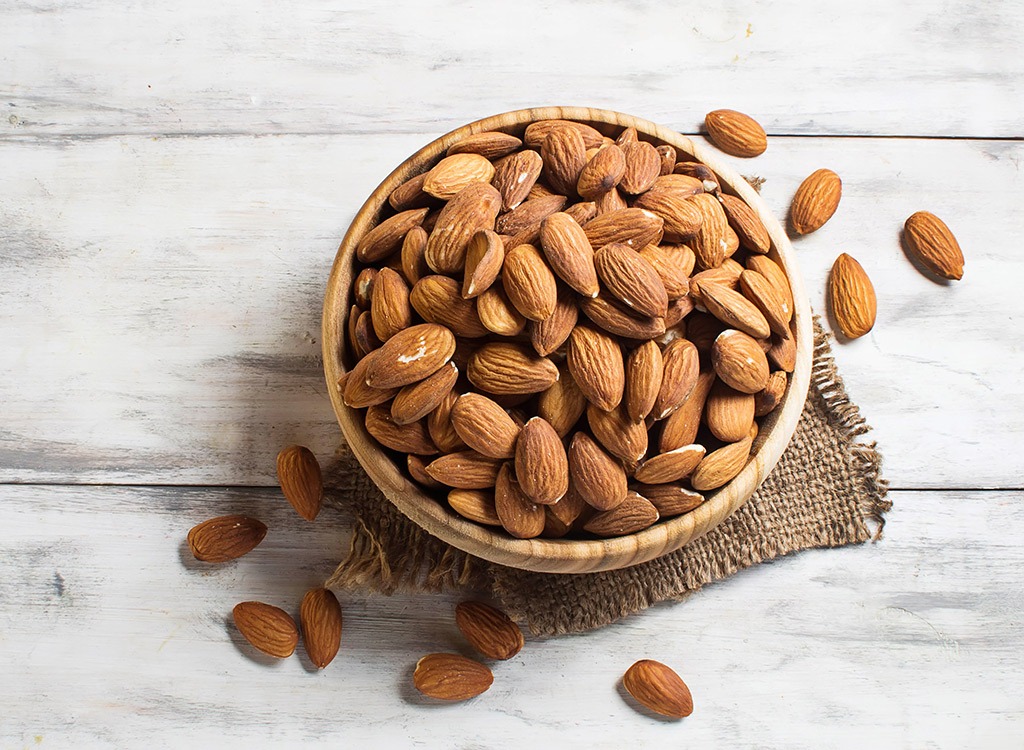
“Eat this to target belly flab, shut off your fat genes, and even prevent fat from latching onto your batwings!” It may sound like the tagline of the newest weight-loss supplement, but these claims are actually the real results you’ll get after eating real food. That’s right. Many of the nutrients already found in food are some of the most powerful weight-loss tools. To prove it to you, we’ve assembled the current weight-loss nutrient hall of fame. Here are some of most effective—and the most significant—food sources of each along with how they can help you slim down. Ready for the next step? Put these nutrients to work, and check out these 42 Ways to Lose 5 Inches of Belly Fat.
Arginine
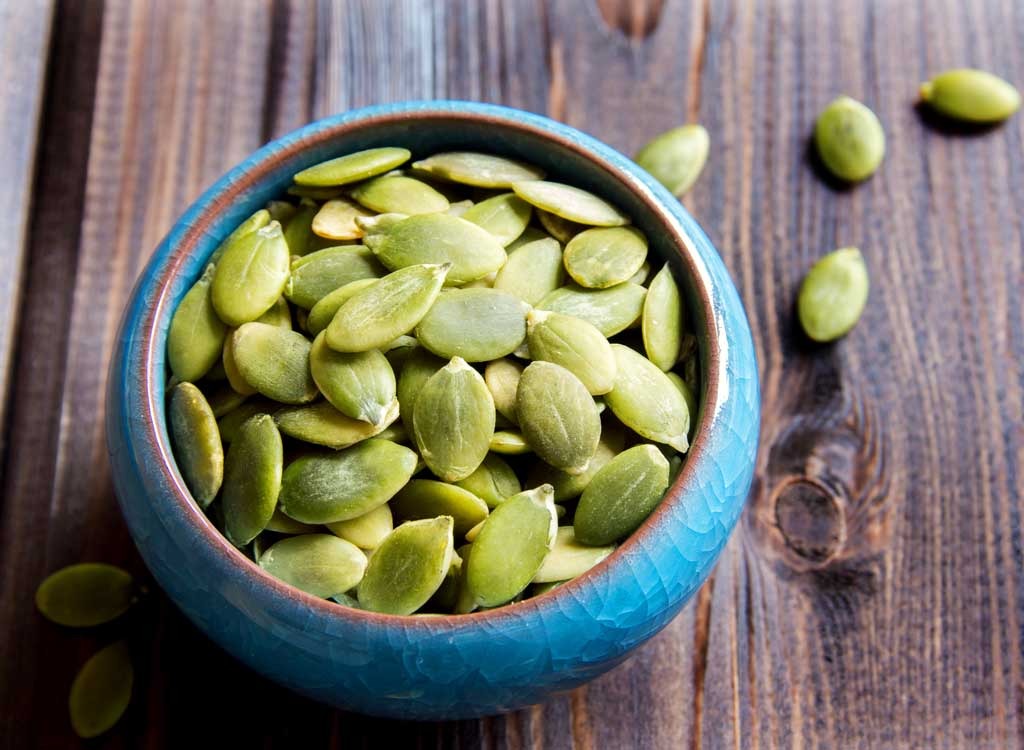
Why It’s Great: This amino acid is one of the newest secret weapons for weight loss. Researchers found that administering arginine to obese women over 12 weeks resulted in a 3-inch average reduction in waist size and a 6.5-pound average weight loss, according to a recent study published in the Journal of Dietary Supplements. While that’s a welcome effect anytime, there’s a benefit to timing your dose: L-arginine consumed before a workout can help you burn more fat and carbs, a separate study found.
How to Get It: Grab a handful of almonds, which are a great pre-workout snack. Other great sources: Tofu, eggs, grass-fed beef, peanuts, and walnuts.
Magnesium
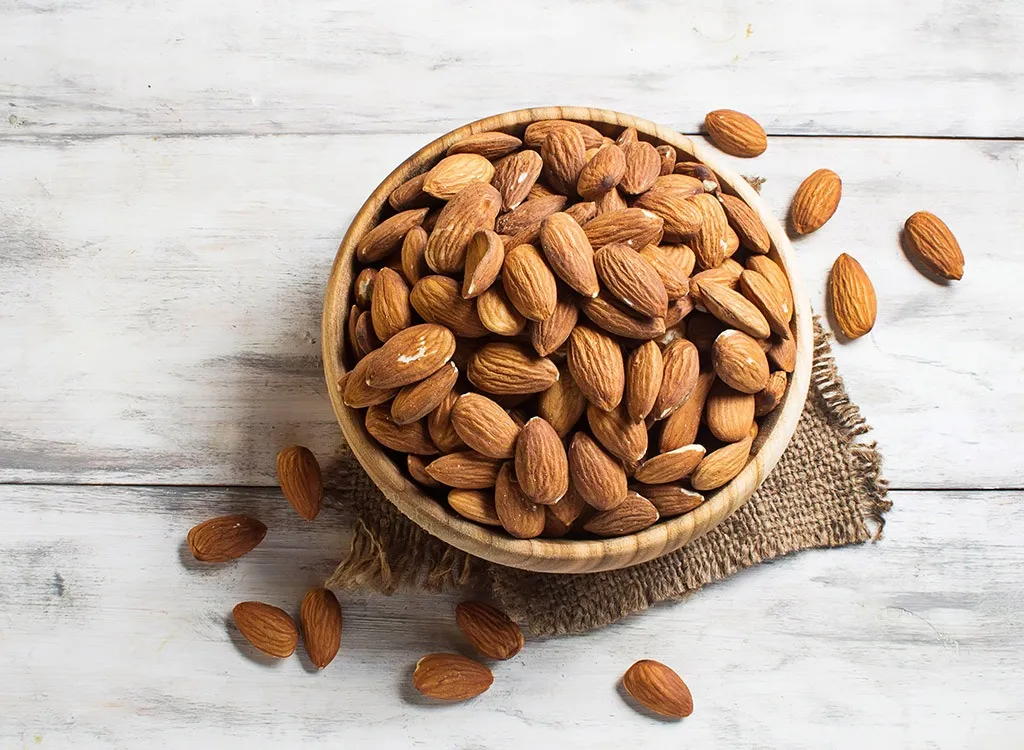
Why It’s Great: This essential mineral aids in hundreds body processes including muscle contraction, which improves protein synthesis. That, in turn, boosts fat burning. Higher magnesium intake was associated with lower levels of fasting glucose and insulin (factors that are related to fat storage and weight gain) in a Journal of Nutrition study. Also, consuming magnesium helps boost lipolysis, a process in which your body releases fat from where it’s stored.
How to Get It: Almonds, chard, cashews and spinach are rich in the nutrient.
Potassium
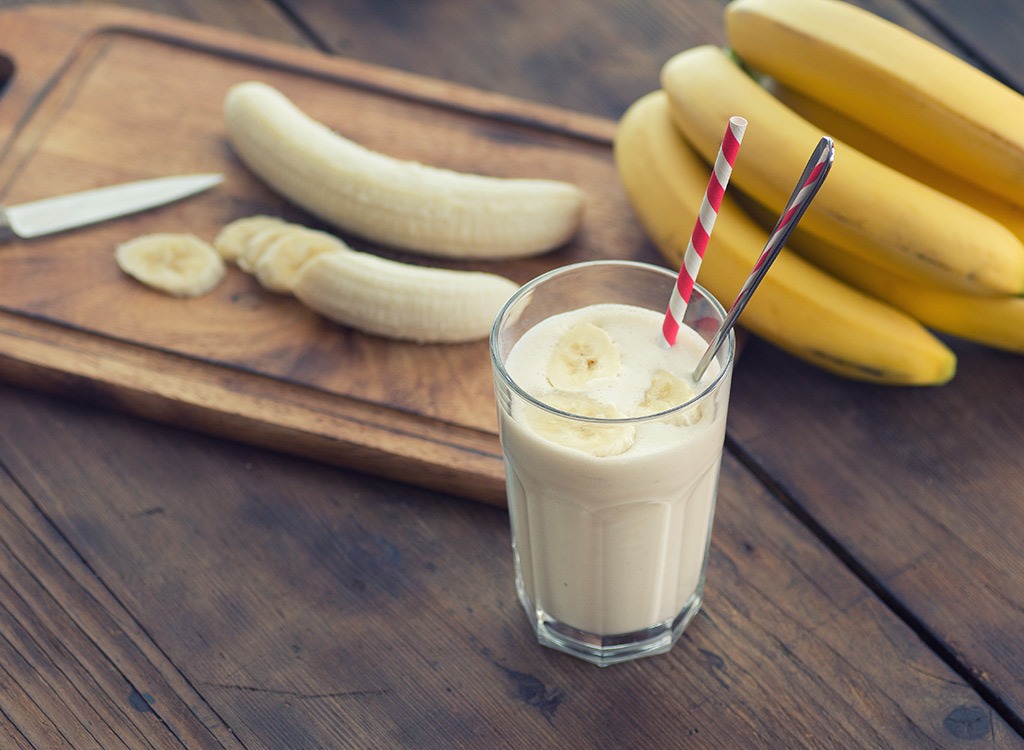
Why It’s Great: Potassium helps flatten your belly in two ways: It aids in muscle recovery after a workout, and it helps the body flush out water and sodium, reducing bloat. It’s also crucial in maintaining healthy heart and kidney function, so seek it out. Only 4.7% of Americans consume adequate potassium, University of Illinois researchers found.
How to Get It: Bananas get all the credit for this flat-belly nutrient, but molasses is actually the best food source according to the USDA. Add molasses, bananas, avocados, nuts, and leafy green vegetables to your grocery list to reap the muscle-relaxing benefits.
Choline
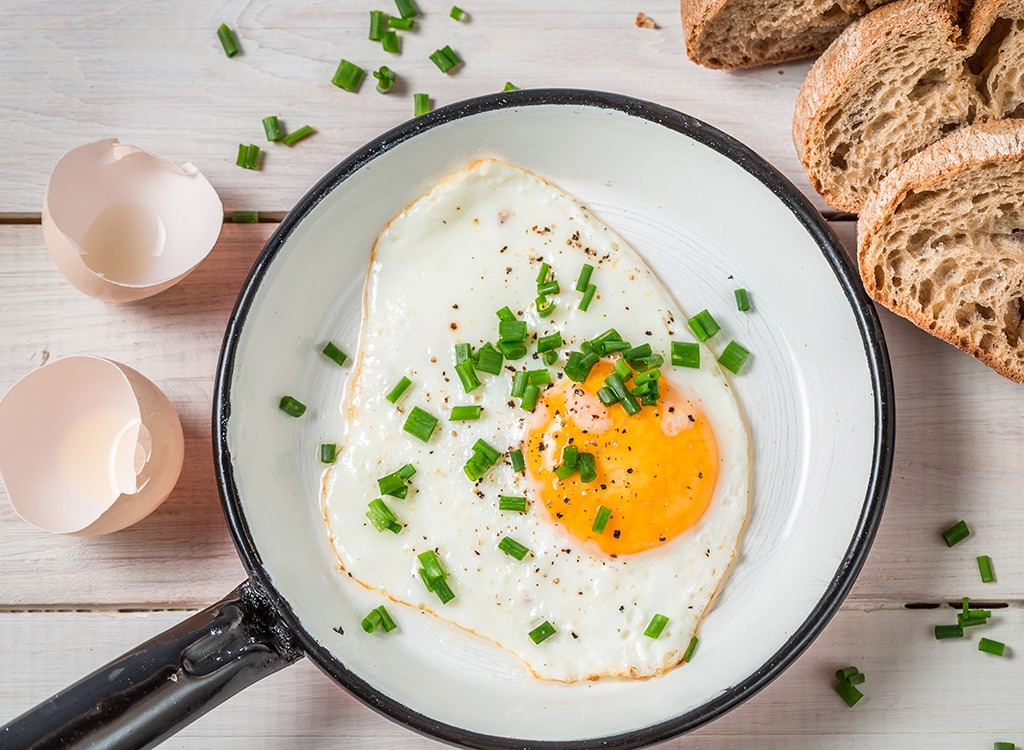
Why It’s Great: This fat-blasting B vitamin turns off the genes that cause your body to store fat around your liver. Studies have shown that dieters who eat eggs for breakfast, as opposed to high-carb meals such as bagels, lose weight faster because they’re less hungry.
How to Get It: Eggs are the #1 food source — but you have to eat the yolk. Choline is also found in lean meats, shrimp, and collard greens.
ResistantStarch
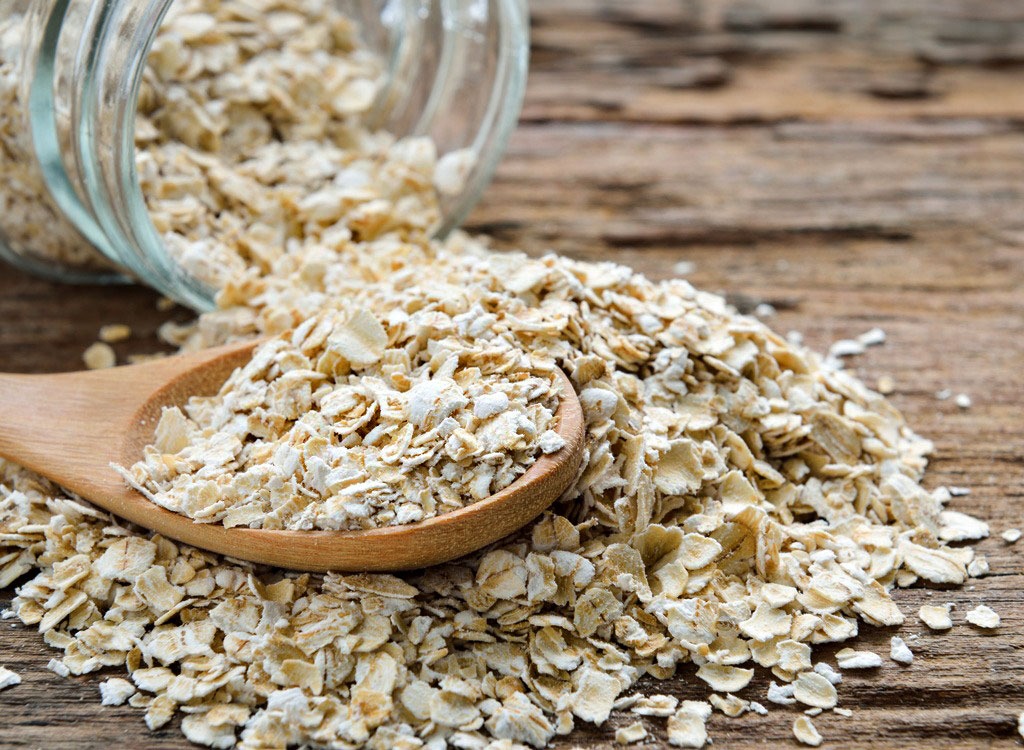
Why It’s Great: Also known as “slow carbs,” resistant starch passes through the small intestine without being digested, feeding healthy gut bacteria that help you feel fuller longer and burn fat. In fact, replacing just 5 percent of the carbohydrates you consume each day with a source of resistant starch can boost fat burning after meals by up to 30 percent, one study found.
How to Get It: Throw some raw oats into your weight-loss smoothie, or eat some chilled potatoes, cold pasta salad, slightly green bananas, lentils, and peas.
Omega-3 Fatty Acids

Why They’re Great: These fatty acids are famously excellent for your heart; they reduce the risk of arrhythmia, lower triglyceride levels, and decrease blood pressure. And they’re no slouch when it comes to weight loss either. Omega-3s reduce stomach fat storage by tackling inflammation head on. A fairly significant bonus: people with the highest blood levels of omega-3s lived an average of two years longer than those with lower levels, a study published in the Annals of Internal Medicine showed.
How to Get Them: Wild salmon (make sure it’s wild, not farmed) and other oily fish, omega-3 eggs, grass-fed beef, walnuts, chia seeds, and flaxseed oil.
Leucine
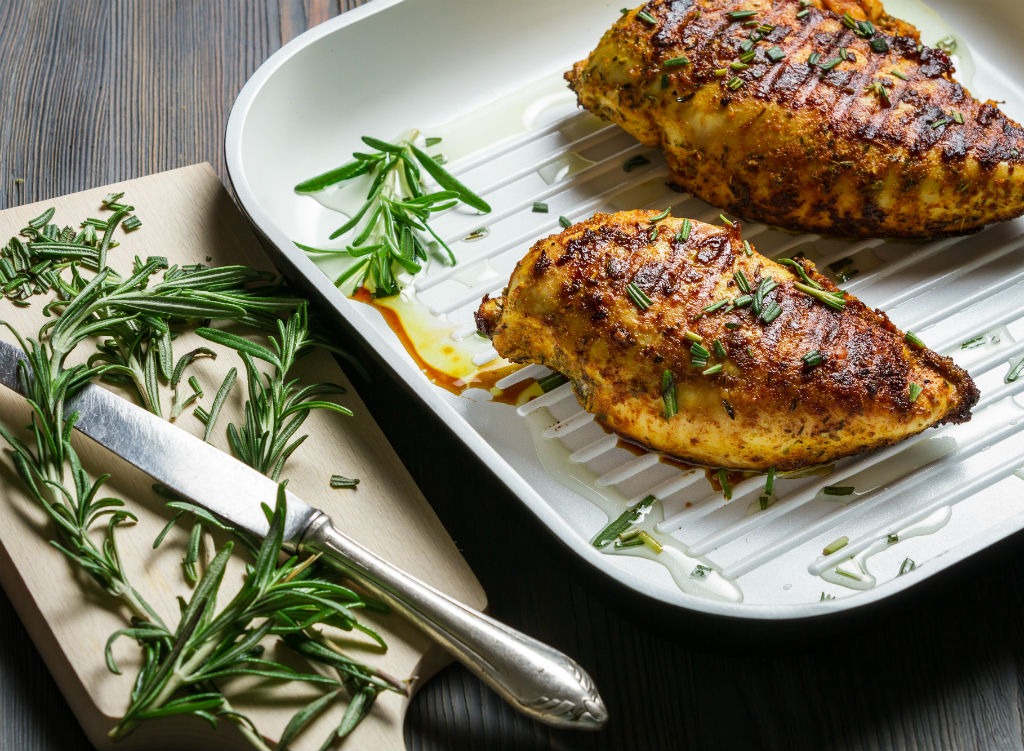
Why It’s Great: This amino acid is key to muscle building because it increases the body’s ability to synthesize protein (AKA build muscle mass). Researchers fed one group of people meals containing 10 grams of leucine per day, and another group a lower-leucine diet in studies conducted at the University of Illinois. In two studies, the groups that ate high-leucine diets lost the most weight and body fat, and maintained the most lean body mass. That’s key for keeping your metabolism humming as you drop pounds.
How to Get It: Chicken is an excellent source; according to the USDA, a 6-ounce chicken breast contains about 4.4 grams of leucine per serving and 52 grams of protein. Other good sources include eggs, tofu, fish, beef and pork.
Vitamin D
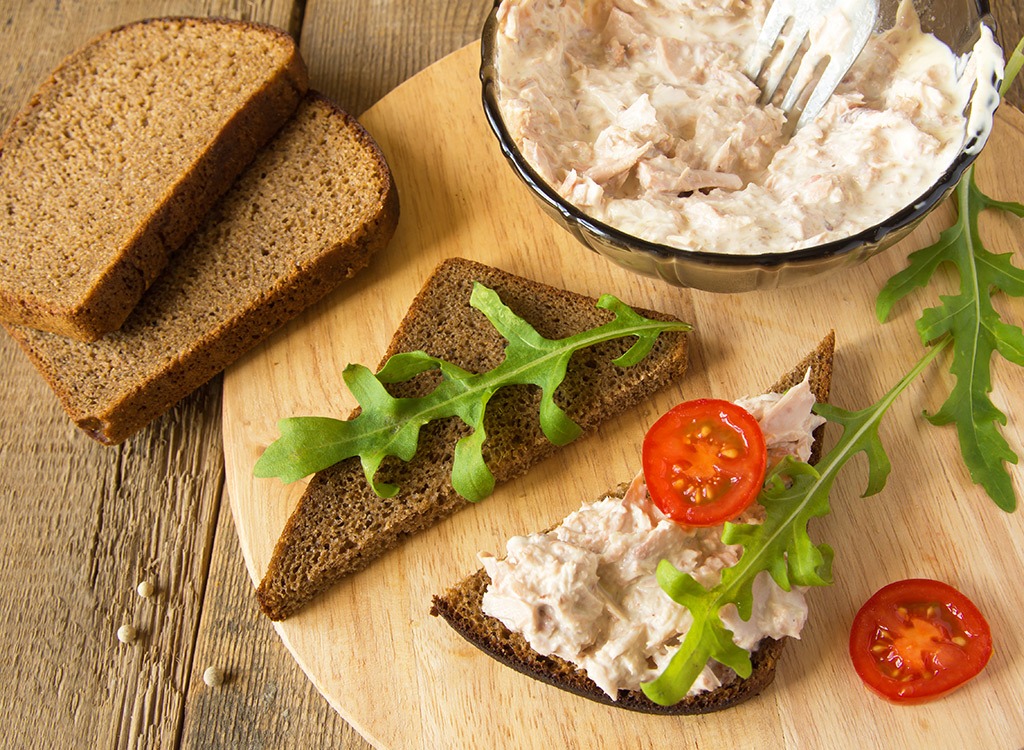
Why It’s Great: Aside from its well-publicized benefits—such as lowering the risk of cancer—the sunshine vitamin also helps boost immunity and regulates appetite. And its importance in your weight loss diet shouldn’t be underestimated: a 2012 study found that supplementation with vitamin D was associated with a 7 percent decrease in fat! Another study from the University of Minnesota found a relationship between higher levels of D and fat loss, particularly in the belly area.
How to Get It: Fish (both fatty and canned), eggs, shiitake mushrooms, and fortified dairy products will all help you get that flat stomach you’re after.
Monounsaturated Fats
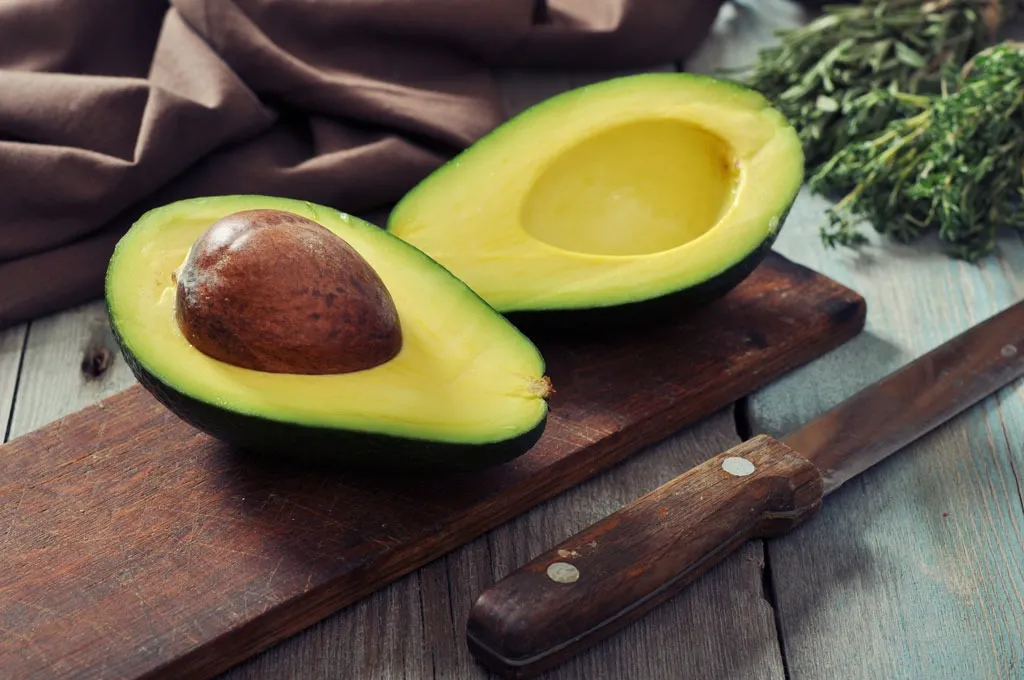
Why They’re Great: These healthy fats strengthen your heart, increase satiety, and prevent the storage of belly flubber. A study in Nutrition Journal found that participants who ate half a fresh avocado with lunch—rich in oleic acid, one of the best sources of monounsaturated fats—reported a 40 percent decreased desire to eat for hours afterward.
How to Get Them: Those aforementioned avocados, grass-fed beef, extra virgin olive oil, coconut oil and dark chocolate will be your best bets.
Calcium
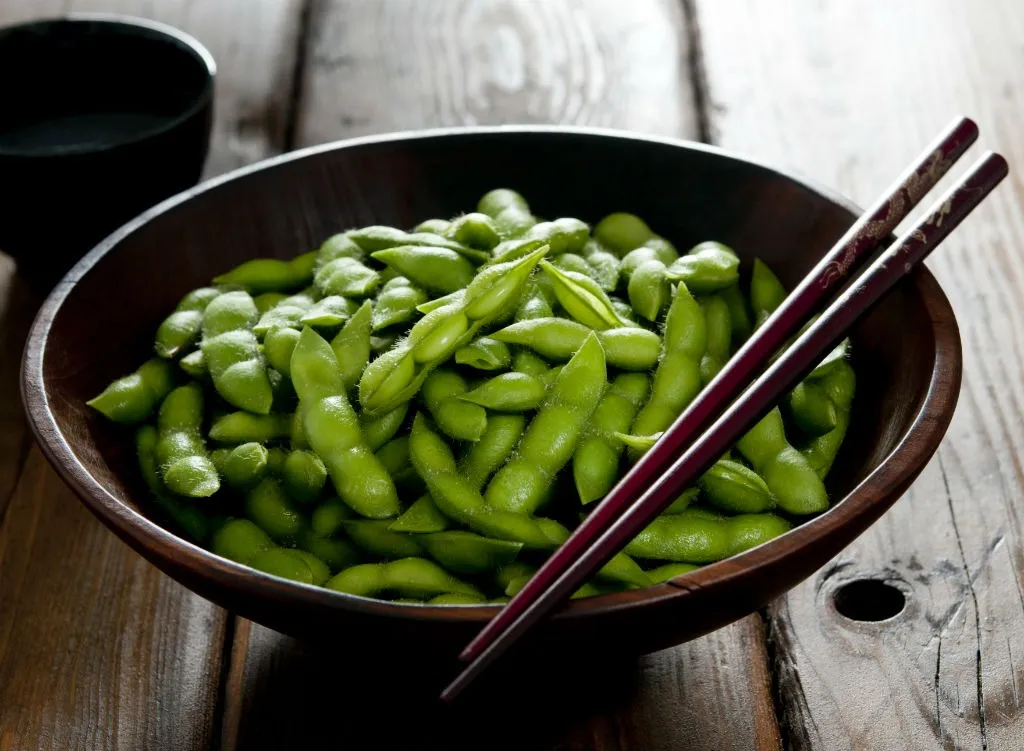
Why It’s Great: You know it’s good for your bones, but did you know calcium can also help your body burn more—and store less—fat? That’s because this mineral helps convert fatty acids into energy. Not only that, but sufficient calcium levels ensures our insulin is working properly. Because insulin is one of the main hormones that regulates our blood sugar levels, having well-functioning insulin levels can help maintain more stable energy levels throughout the day; meaning you won’t be digging your hand into an extra bag of chips after lunch.
How to Get It: Don’t just look to cows. Here are 20 Calcium-Rich Foods That Aren’t Dairy!
Vitamin C
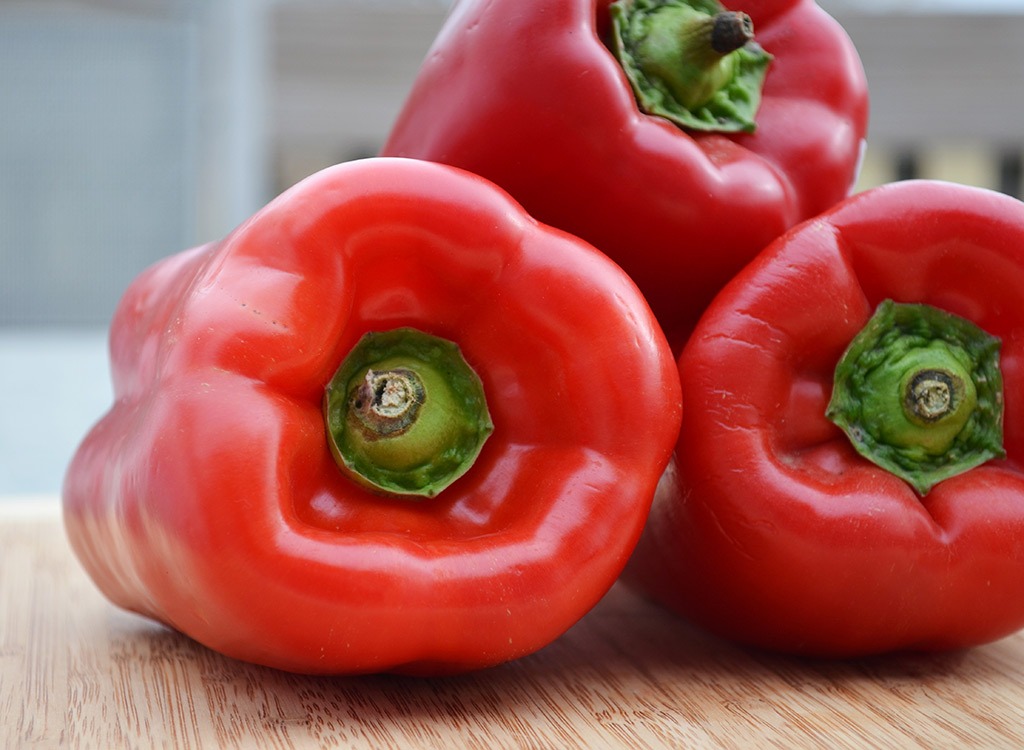
Why It’s Great: Ever feel like your mind is in a fog when you’re stressed? That’s not your only problem. Stress—which is caused by high levels of cortisol—can also cause belly fat storage because of cortisol’s ability to pull lipids from the bloodstream and store them in your body’s fat cells. It could get worse: When stress prevents people from sleeping well, a study in the American Journal of Clinical Nutrition found that people are more likely to make bad food choices, snack late at night, and choose high-carb snacks. Luckily, vitamin C is an antioxidant which has been proven to help people cope with stressful situations. According to one study, both levels of cortisol and blood pressure decreased rapidly in anxious subjects given vitamin C supplement.
How to Get It: Red peppers, strawberries, oranges, and kale. These aren’t the only foods that’ll help you get over your mood: check out these 22 Best & Worst Foods For Fighting Stress!
Selenium
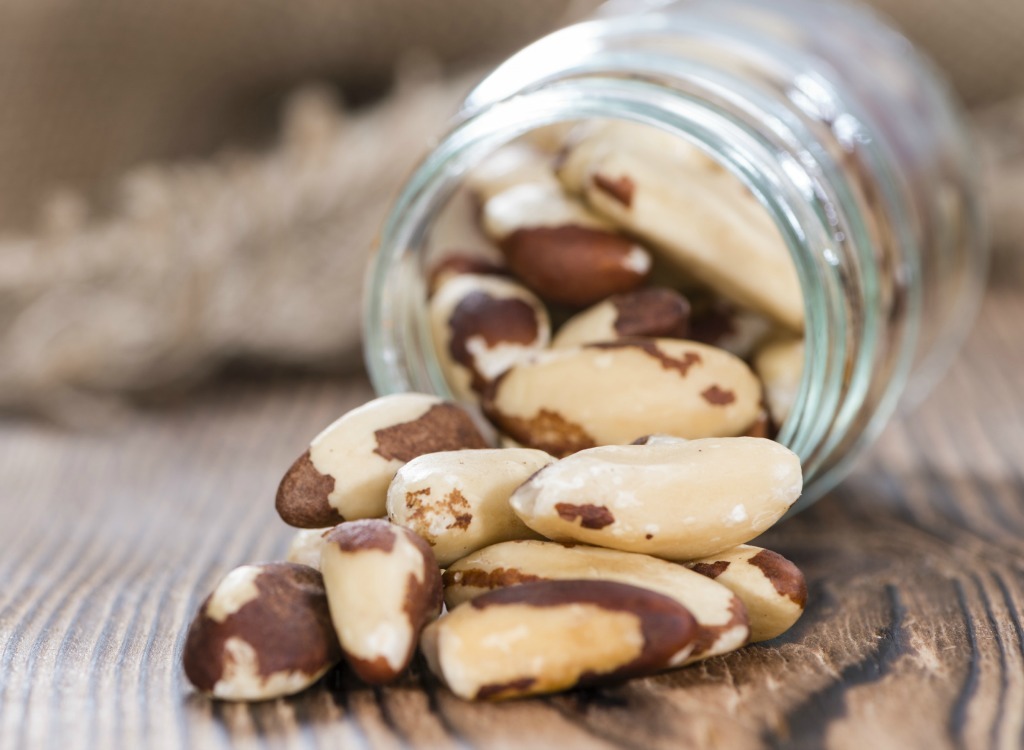
Why It’s Great: This mineral holds the key to maintaining proper thyroid health. Why is that important, you may ask? It’s because your thyroid is small gland in your neck that secretes hormones that control major bodily functions, including how you digest food, use energy, and even the efficiency of your metabolism. Selenium not only acts as the “on” switch to proper thyroid function, but it also helps protect the gland from inflammatory byproducts of thyroid hormone production. Many people who have a sluggish thyroid exhibit deficiencies in selenium along with a slowed metabolism and weight gain. Luckily, studies show that supplementation of 80 micrograms per day—about what you’ll find in just one Brazil nut—helps to reduce anti-thyroid antibodies.
How to Get It: Check out Brazil nuts, which are some of the richest sources of selenium on the planet. Next up is tuna, shrimp, cod, mustard seeds, and poultry.
B Vitamins
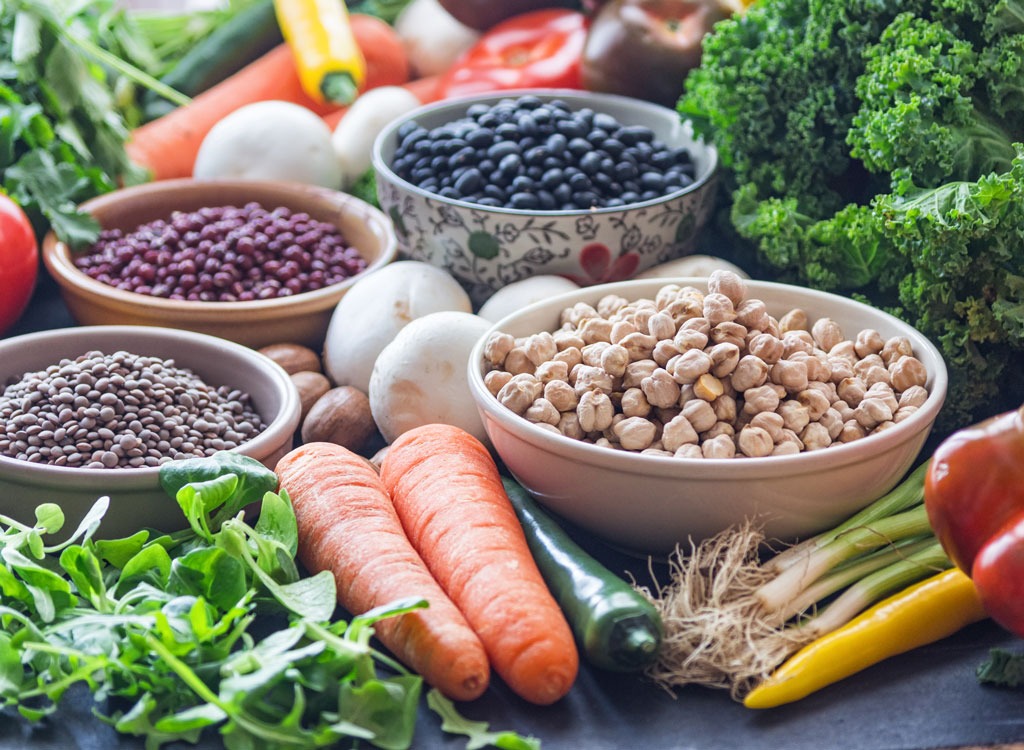
Why They’re Great: Just because they’re “B vitamins” doesn’t mean they’re second rate. Vitamin B1 (thiamine) convert carbohydrates into energy and B2 (riboflavin) helps release energy in the Krebs cycle (the process by which our bodies generate energy). The active form of vitamin B6, pyridoxine, helps to regulate which enzymes our body uses to extract energy from food. Finally, vitamin B12 helps to metabolize our two main energy sources: fats and carbohydrates. Two separate studies have found associations between those who are overweight or obese with low vitamin B1 and B12 levels.
How to Get It: You’ll find B1 in sunflower seeds, beans, peas, and oats; B2 in soybeans, beet greens, spinach, yogurt, and crimini mushrooms; and B12 in sardines, grass-fed beef, tuna, cheese, milk, and eggs.
Zinc
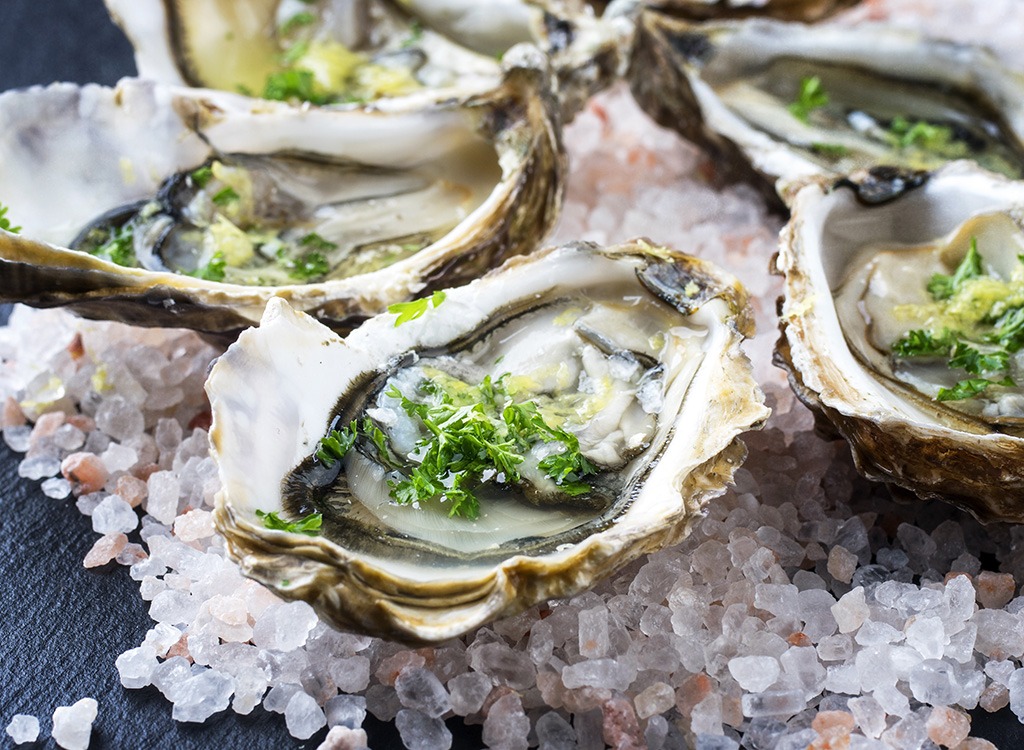
Why It’s Great: Because zinc is a trace mineral, we only need a little of it. But that still means people can become deficient. Those with zinc deficiencies often suffer from a weakened immune system and fatigue, as zinc is necessary for producing the stomach acids which help break down the fats and protein you eat into energy or muscle mass. Not only that, but who have low levels of zinc don’t secrete enough insulin (the hormone which facilitates our glucose metabolism), which can further cut into our energy levels and lead us to eat more to compensate.
How to Get It: Start shucking! Oysters are a great source of zinc, along with beef, lentils, chickpeas, turkey, and quinoa. Eat up with our favorite quinoa bowls!
EGCG
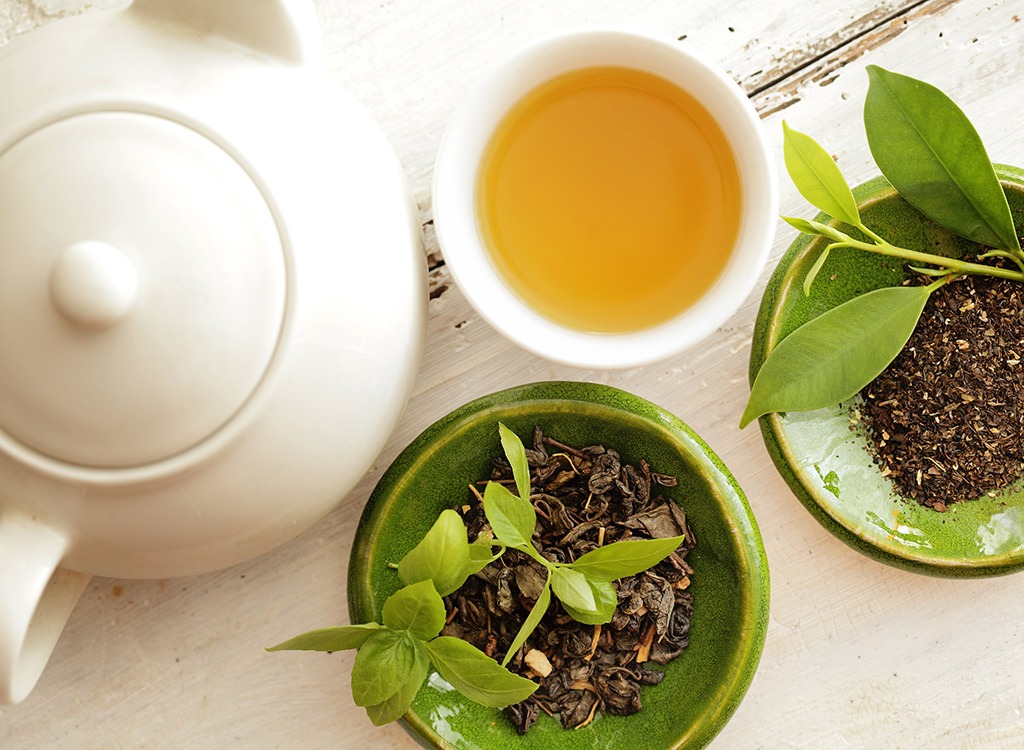
Why It’s Great: Rev your metabolism with this antioxidant found almost exclusively in green tea: EGCG, or epigallocatechin gallate. It’s been found to both simultaneously enhance lipolysis (the breakdown of fat), block adipogenesis (the formation of fat cells), and boost thermogenesis (the production of heat through burned calories). In fact, when Taiwanese researchers studied more than 1,100 people over an 10-year period, they found that those who drank green tea had nearly 20 percent less body fat than those who drank none.
How to Get It: Green tea will serve up the best of this metabolism-boosting antioxidant!
Tryptophan
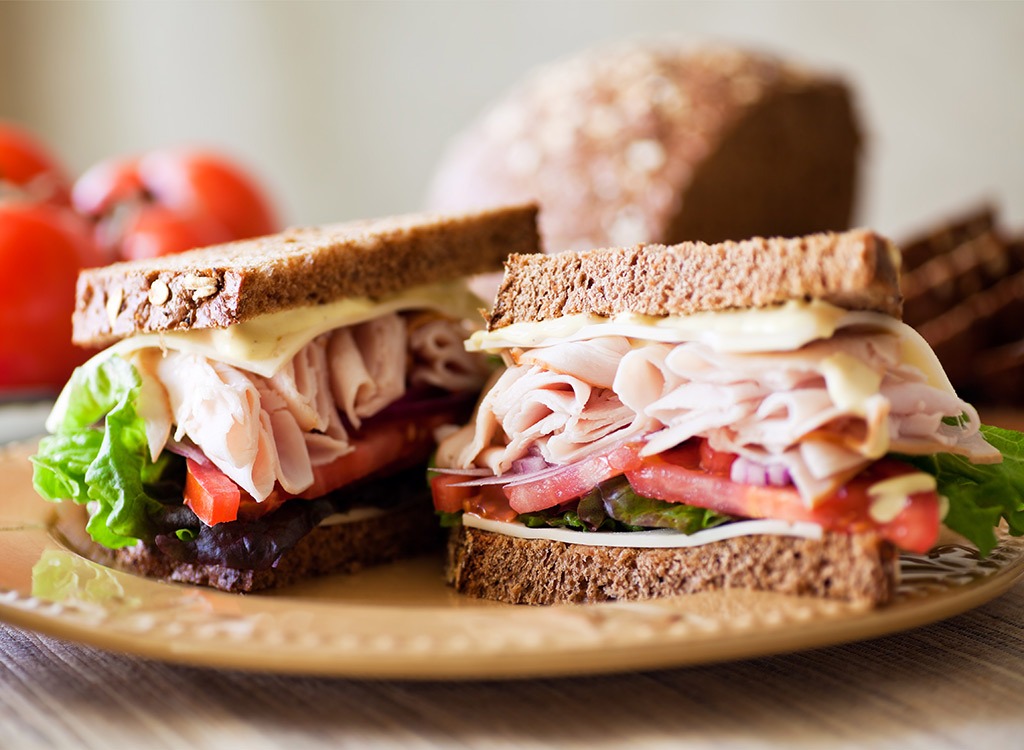
Why It’s Great: Experts say that working up a sweat is key to weight loss—and it’s not just because “calories in, calories out.” When you do resistance training, your body builds up muscle mass: a tissue we know to burn more calories at rest than fat cells. In order to build up muscle mass, your body needs time to rest and recover, and there’s no better way to do this than sleep. (Not to mention, a study in the American Journal of Clinical Nutrition found when dieters missed out on shut-eye, it made calorie-dense meals more appealing the next day.) If you feel like you’re constantly counting sheep, just check out these best sources of food for sleep. Many of which are sources of the amino acid, tryptophan: a precursor to serotonin, which gets converted into melatonin to encourage sleep.
How to Get It: The best sources to nosh on at nighttime to tryp your sleep switch are eggs, cheese, milk, pineapple, bananas, sunflower seeds, tofu, and turkey. Here’s another tip: Studies have found that the most tryptophan will enter your brain (to be made into melatonin) if you pair the food with carbs. Think: cereal and milk or turkey on toast.